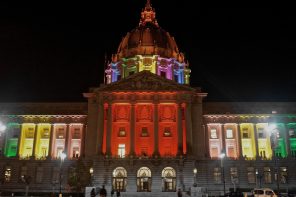Apparently soldiers’ rights hotlines have been getting calls from some soldiers who don’t want to serve in the military next to openly gay men and women. They want to know if this means they could qualify for conscientious objector status.
So far, the calls are few and far between. The New York Times builds its whole story out of a handful of phone calls and an email. But the article indicates that those who run the various nonprofits that help soldiers achieve conscientious objector status expect a floodgate of calls if Don’t Ask Don’t Tell is formally repealed. The good news is that the groups don’t think there is legal basis for the claims.
In the “don’t ask, don’t tell” cases, Ms. McNeil concluded that there was no legal basis for a conscientious objector claim.
The legal standard, she said, is that the person must be conscientiously opposed to participating in war in any form, based on a sincerely held religious, moral or ethical belief. And the person must have had a change of heart since joining the military, when the person signed a form saying he or she was not a conscientious objector and did not intend to become one.
“In the ‘don’t ask, don’t tell’ situation, they’re not opposed to participating in war, they’re opposed to who they’re participating with,” Ms. McNeil said.
In other words, there is no recognized religious objection to serving with LGBT members. Just as white soldiers had to learn to get along with black soldiers following military desegregation, heterosexuals are going to have to learn to get along with gay men and women in the military, who, they shouldn’t need to be reminded, are already serving alongside them.




